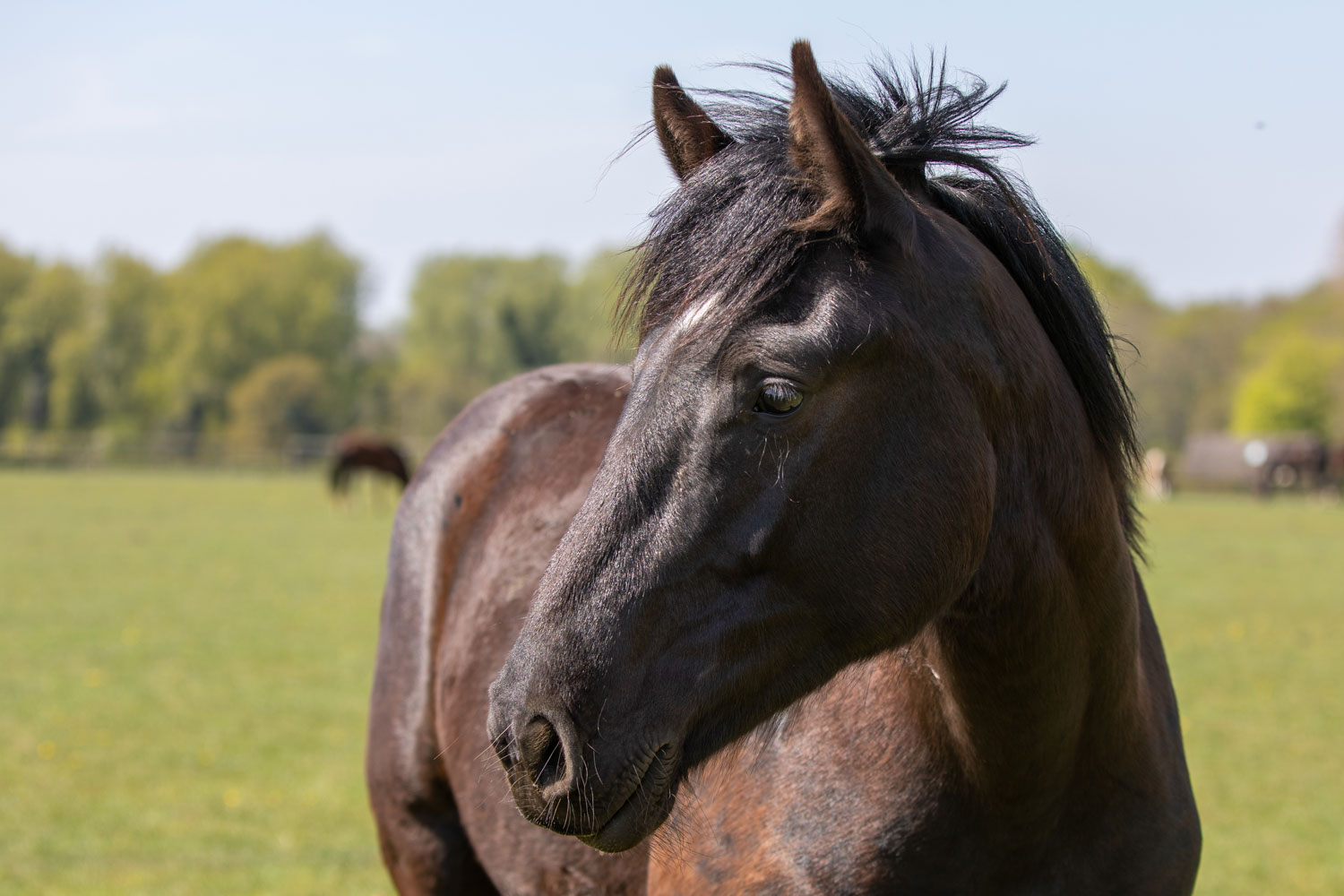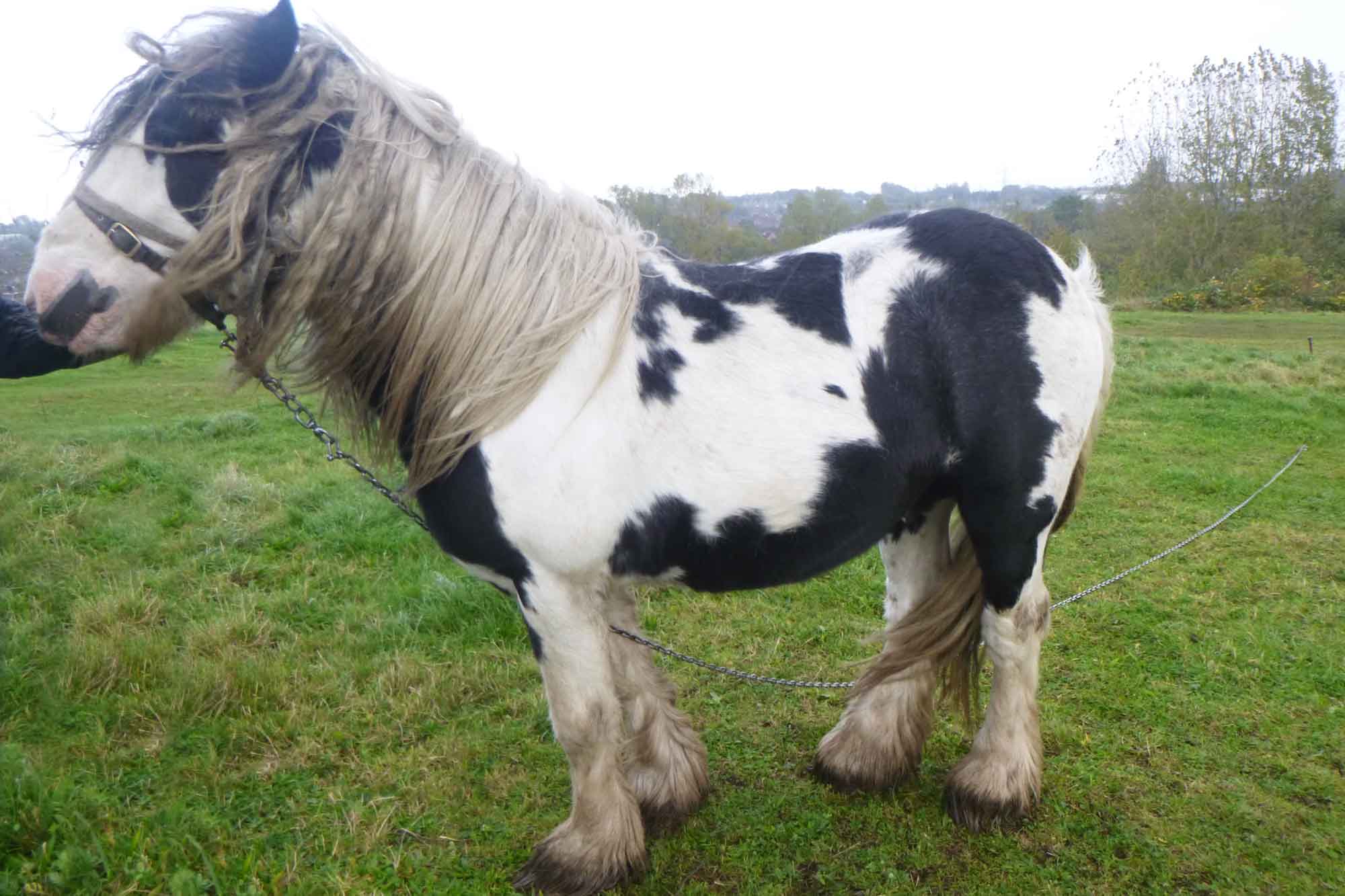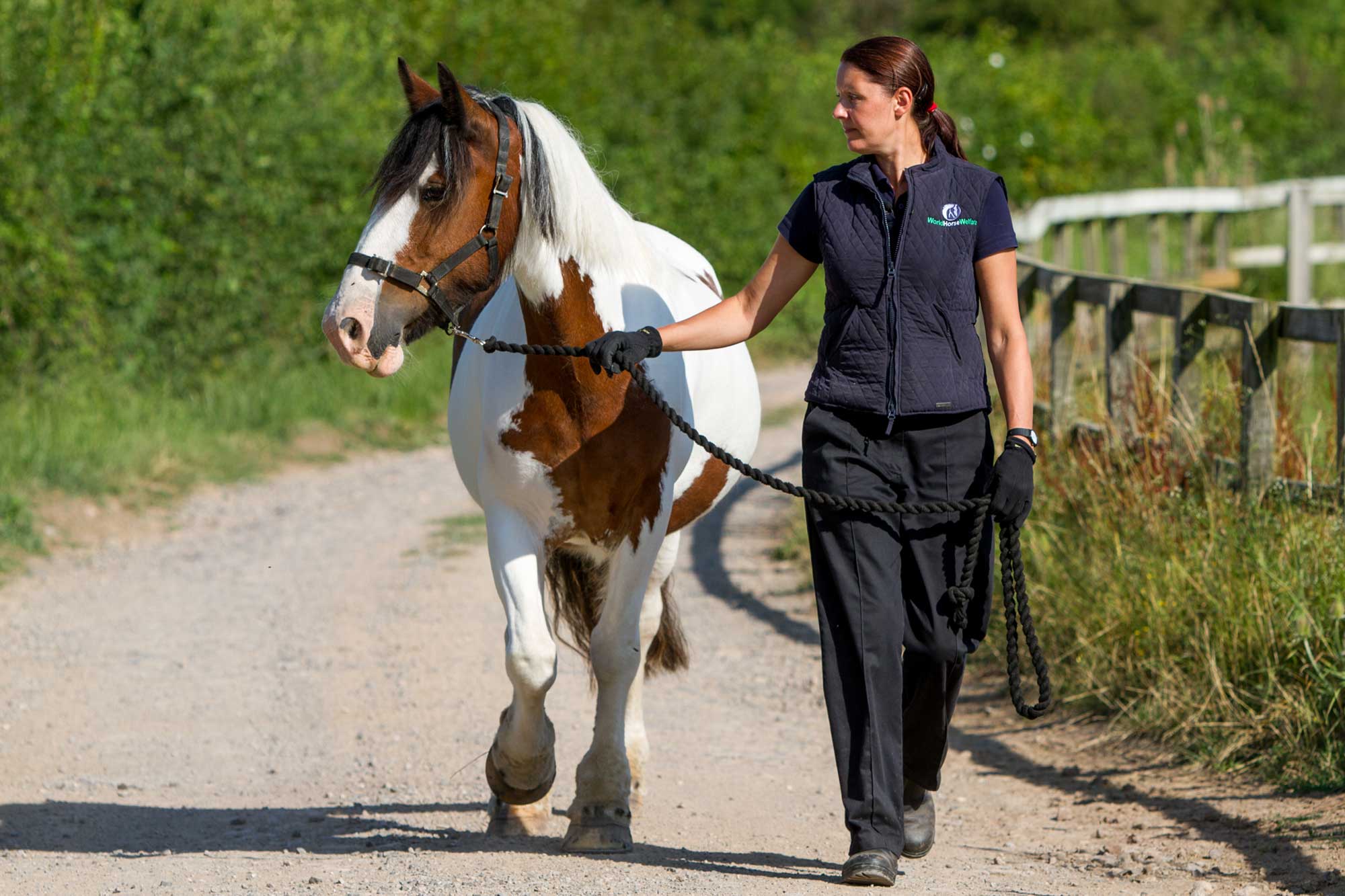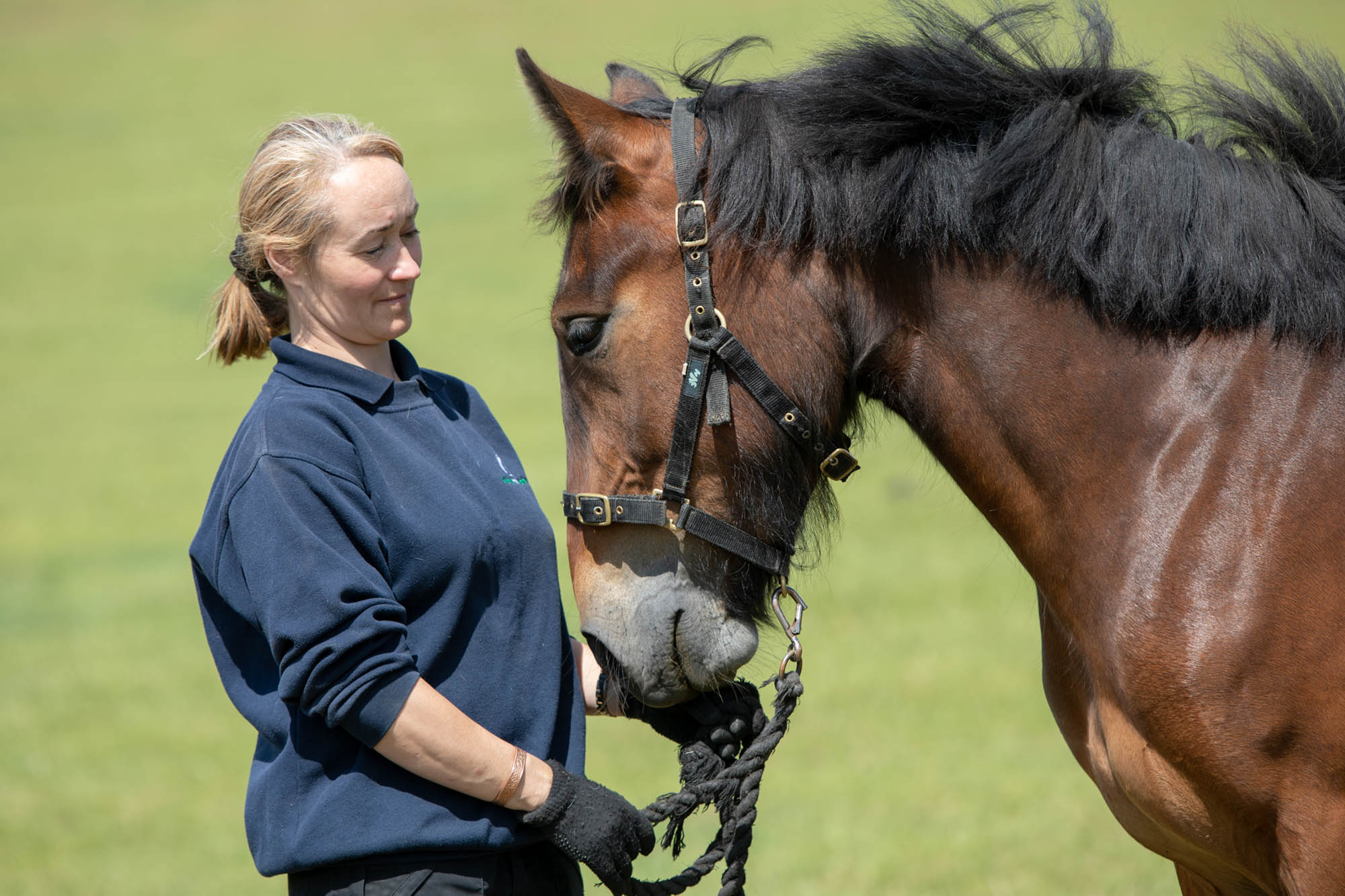A seismic day for animal welfare
World Horse Welfare warmly welcomes stiffer punishments for animal cruelty as maximum sentences increase in England and Wales.
Posted on 29/04/2021

World Horse Welfare warmly welcomes the news that the long-awaited Bill to increase sentencing for the worst cases of animal cruelty offences from six months to five years received Royal Assent today. As Britain’s largest equine rescue and rehoming charity, World Horse Welfare has been part of a coalition of leading animal welfare organisations that has been pushing UK Parliament to increase these penalties.
Roly Owers, chief executive of World Horse Welfare said:
“This is a seismic day for animal welfare and I just want to express a huge thank you to all our supporters who campaigned to help make this happen – you really did make the difference. We are delighted that the Bill has finally become law – giving courts the opportunity to hand out much heftier sentences that are in line with other countries – and go some way towards acknowledging how heinous animal cruelty can be.
“Of course, we recognise that most equine offences are for neglect and do not receive prison sentences and whilst this Bill is a huge step in the right direction, there is still so much more to achieve. This will include pushing hard for accessible registers of equine offenders so that investigators in any part of Great Britain will be able to immediately confirm if a person has received a ban on keeping animals.”
The coalition of welfare organisations – consisting of Battersea Dogs and Cats Home, Blue Cross, Cats Protection, Compassion in World Farming, Dogs Trust, Humane Society International, the International Fund for Animal Welfare, UK Centre for Animal Law, and World Horse Welfare – was brought together by The League Against Cruel Sports and RSPCA in June 2019.
They have been campaigning together to see maximum sentences for the most heinous crimes against animals increased from six months to five years, in line with sentencing policy across Europe and internationally.
In a joint statement, the coalition said:
“It’s nearly two years since we first went to Downing Street to call on Theresa May’s government to bring this bill back to parliament, and more than five years since it was first proposed by Anna Turley, the then Labour MP for Redcar.
“Our coalition, representing the interests of millions of animal lovers across the UK, was determined to bring about this momentous change in law that will act as a deterrent. We finally have a punishment that fits the crime. It is a huge and long-awaited win for animals and the public alike.
“We heartily thank Chris Loder MP and Lord Randall of Uxbridge for their excellent work in getting this bill into law, as well as the Government and politicians on all sides of both Houses of Parliament who have signalled their commitment to animals in this bill.”
Andy Knott, chief executive of the League Against Cruel Sports, said:
“Animals need us to speak up for them, and our close collaboration lent them a voice that was both compelling and deafening. We now have a meaningful deterrence to protect animals from wilful abuse or cruel sports such as dog-fighting.”
Peter Laurie, chief executive of Battersea Dogs and Cats Home, said:
“After many years of campaigning, I’m delighted that the Government has listened to our coalition and finally increased maximum sentences from six months to five years for the worst animal cruelty offences. As a nation of animal lovers, the previous punishment was wholly inadequate.”
Chris Sherwood, chief executive of the RSPCA said:
“Our officers are faced with cases of the most unimaginable cruelty; from organised criminals making money from the suffering of animals, to pets starved, shot, stabbed, beaten to death and drowned. At least now, in those most shocking of cases, courts will be able to hand out sentences that truly reflect the severity of the crimes.”
Lord Randall of Uxbridge, former Special Advisor on the Environment to then Prime Minister Theresa May MP, met with the coalition in June 2019, and has spearheaded the bill’s passage through the House of Lords.
He said:
“It is a much-needed measure that will now ensure that those who harm an animal by, for example, causing unnecessary suffering, mutilation or poisoning, face the full force of the law.
“I commend all of the charities involved for the weight and purpose that they brought to this campaign, to secure one of the most significant changes to animal welfare legislation since the Animal Welfare Act of 2006.”
Topics
Related News

Mrs Potts staying trim with the support of Baileys Horse Feeds
Keeping Mrs Potts at a healthy weight has been a challenge but now, with the support of feed company Baileys Horse Feeds, a healthy balance has been found.

Man banned from keeping horses for ten years after allowing headcollar to become embedded in pony’s head
The pony's owner had pleaded guilty to causing unnecessary suffering to a protected animal.
Recommended Blog Posts

Top tips and practical advice on managing your horse’s weight to keep them healthy
Assistant Centre Manager Sara Jerman explains practical ways to manage your horse’s nutritional intake and keep them at a healthy weight.

“So how does Vet Day work then?”
Claire Dickie, Glenda Spooner Farm Centre Manager, gives an overview of how vet day works at our farms.

Reflections on our relationship with the Balmoral Estate
Centre Manager Eileen reflects on Belwade Farm’s connection with Balmoral Estate – the Scottish residence of our late monarch Her Majesty Queen Elizabeth II – over the years.
Enjoy reading stories like this?
Join over 55,000 other horse lovers and sign up for our email newsletter

Join over 55,000 other horse lovers and sign up for our email newsletter
Sign me up now